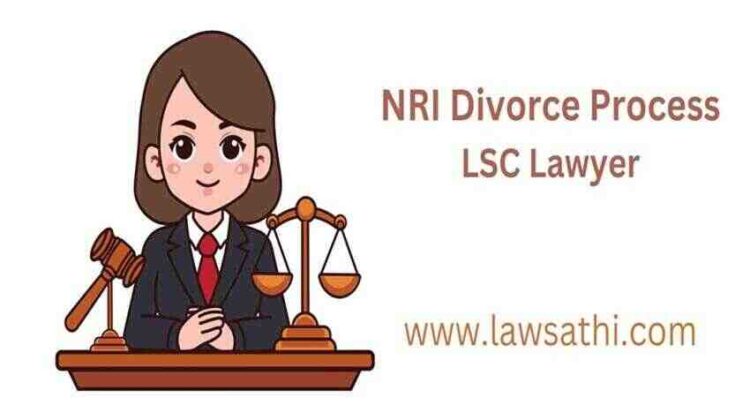
NRI Mutual Divorce Process Under Special Marriage Act, 1954
What is Mutual Divorce?
Mutual divorce means the peaceful separation of a husband and wife with mutual consent. Both partners agree that they can no longer live together and wish to dissolve their marriage in a respectful manner. Unlike a contested divorce, a mutual divorce saves time, money, and emotional stress for both parties. NRI mutual divorce lawyer in Delhi.
About Marriage in India
In India, marriage is a deeply significant aspect of the sacred and the social. Traditionally, it is not merely a union between two individuals but a pivotal social alliance between two families, with the majority of marriages being arranged by families based on factors like caste, community, astrological compatibility, and social status. While rooted in ancient religious sacraments—viewed as a sacred, lifelong bond (sacred sanskara) in Hinduism and a divine covenant in other faiths—it is also a legal contract governed by a unique system of personal laws specific to one’s religion (like the Hindu Marriage Act or Muslim Marriage Acts) or the optional secular Special Marriage Act. Despite evolving urban trends towards “love marriages” and growing emphasis on companionship, the essential character of Indian marriage largely remains a family-centric, religiously-sanctioned, and socially-endorsed commitment that forms the bedrock of society.
Legal Basis – Special Marriage Act, 1954
The Special Marriage Act, 1954 allows individuals of different religions or nationalities to marry and also provides the legal procedure to dissolve such marriages. Under Section 28 of this Act, couples can file for divorce by mutual consent if both agree to end their marriage amicably.
Eligibility for Filing Mutual Divorce
Not every couple can apply for mutual divorce immediately.
To be eligible:
The husband and wife must have lived separately for at least one year.
They must agree mutually that the marriage has broken down beyond repair.
They must have no pending disputes related to maintenance, alimony, or custody.
Even NRIs can file for mutual divorce in India if their marriage was solemnized or registered under Indian law.
Where Can You File for Mutual Divorce?
Couples can file a mutual divorce petition before the Family Court or District Court having jurisdiction over:
The place where the marriage was solemnized, or
A place where the couple last lived together, or
The place where either spouse currently resides.
For NRIs, the petition can be filed in India through a Power of Attorney if one partner lives abroad.
Documents Required for Mutual Divorce
Before filing, both spouses must prepare the following documents:
Marriage Certificate/ Marriage Invition Card
Passport-sized photographs of both spouses
Address proof (Aadhaar, Passport, etc.)
Proof of separation period (rental agreement, communication, etc.)
Mutual Divorce Agreement mentioning alimony, custody, and property settlement
Having all documents ready ensures a smooth and quick legal process.
Can the 6-Month Cooling-Off Period Be Waived?
Yes, under certain circumstances, the court may waive the 6-month waiting period. Normally, parties file the second motion after completing six months from the first motion. However, the Supreme Court of India permits courts to waive this period if: NRI mutual divorce lawyer in Delhi.
Both parties have genuinely settled all disputes,
There is no chance of reconciliation, and
The court is satisfied that waiting would serve no purpose.
This allows couples, including NRIs, to get a quicker divorce.
Why Choose the Best Mutual Divorce Advocate in Delhi?
Filing a mutual divorce, especially for NRIs, involves documentation, affidavits, and coordination with multiple jurisdictions. Therefore, hiring the best mutual divorce advocate in Delhi helps ensure: NRI mutual divorce lawyer in Delhi.
Legally sound drafting,
Proper representation in court, and
Quick resolution without unnecessary delays, and for making easy process.
At Lawsathi Consulting, our legal team assists clients across India and abroad with smooth, stress-free mutual divorce proceedings under the Special Marriage Act. You may contact.
FAQs on NRI Mutual Divorce
Q1. Can NRIs file for mutual divorce without coming to India?
Yes, one spouse can authorize someone through a Power of Attorney.
Q2. How long does an NRI mutual divorce take in India?
Usually 6 to 8 months, but it can be shorter if the court waives the cooling-off period.
Q3. Is physical presence mandatory for both spouses?
Ideally, yes, for both motions, but courts sometimes allow video conferencing in NRI cases.
Q4. Can a mutual divorce include child custody and alimony terms?
Yes, both can decide and record all terms in the mutual divorce agreement.
Q5. Which is better — mutual divorce or contested divorce?
Mutual divorce is faster, peaceful, and legal when both partners agree.
Conclusion
The NRI mutual divorce process under the Special Marriage Act, 1954 ensures a fair and simple way to end a marriage with dignity. With professional legal support from the best mutual divorce advocates in Delhi, couples can finalize their separation smoothly while safeguarding their rights and interests.
Disclaimer: This article is for educational and informational purposes only. It provides a general understanding of legal remedies but does not constitute legal advice. For specific legal guidance, you can consult a legal expert.



